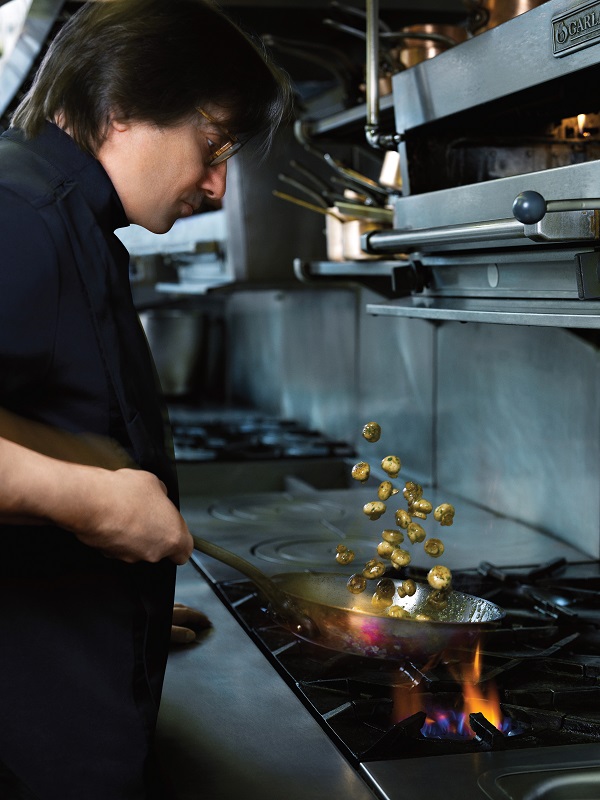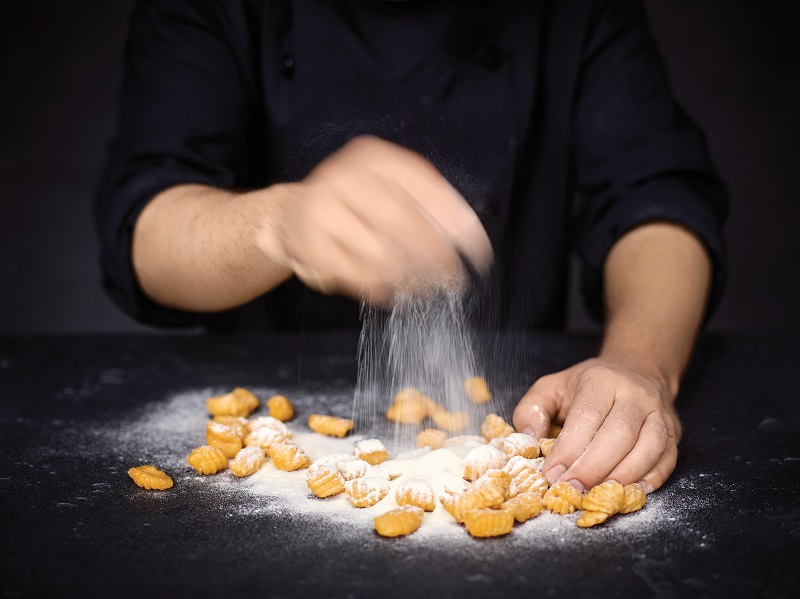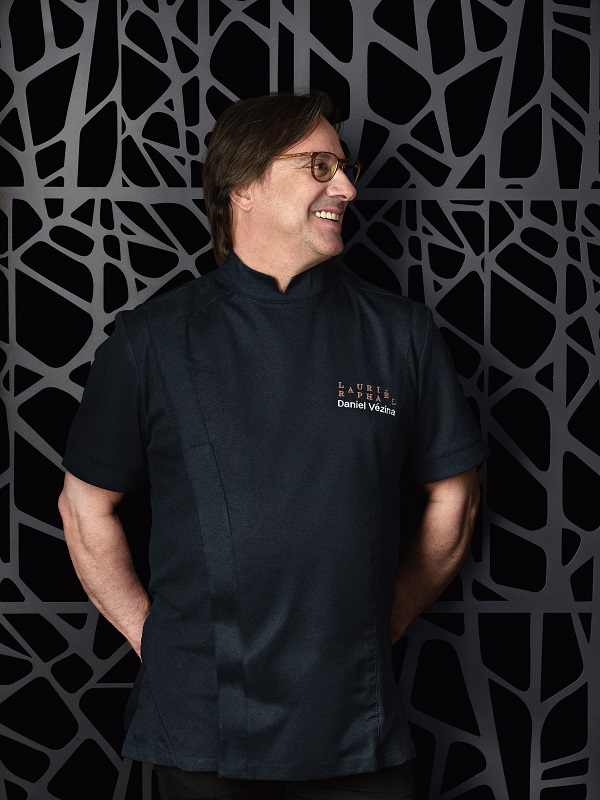My perception of airplane food is that it is spongy and odd, flavourless or badly flavoured. So, I never thought I’d say this, but I really enjoyed the meal I recently had on a plane. For the main course, Air Transat dished up turkey with cranberry sauce and butternut squash risotto, with hints of Grana Padano, scented with truffles. This was served with a cheese plate, complete with apple wedges, a dessert swirling with berries, and a glass of wine.

Daniel Cooking – Photo Courtesy of Air Transat
If this sounds like something cooked up at a chic restaurant, that’s because the menu was created by the prize-winning Canadian chef Daniel Vézina who for the past twenty-five years has owned high-profile restaurants in Montreal and Quebec, while also penning cookbooks, making television appearances, and helping shepherd his kids to adulthood.
By the time, I take my last creamy bite of risotto I know that I want to connect with Vézina and talk about what he sees as the key to culinary success, what inspires him in the kitchen, and what it’s like making food for the skies.
“To be a good chef,” he tells me, “you must be a gourmand, a good eater, thinking about food twenty-four hours per day, and you must be creative and curious—passionate about cooking.
“To create recipes, you have to keep three things in mind,” Vézina continues. “First, the quality of the products is the most important thing. Second, the seasoning, because the taste is essential to create an explosion of flavour in your mouth. And, third, the presentation of the plate. It is the finishing touch of the artist, which expresses his spirit and philosophy.”

Photo Courtesy of Air Transat
Since childhood, Vézina was drawn to the kitchen. His mother was a busy seamstress who didn’t have much time to cook, and Vézina was critical of her efforts, constantly offering suggestions to improve her recipes. She always said to him, “One day, you’ll be a chef…” And she was right. In 1979, Vézina graduated from the cooking program at the Polyvalente de Charlesbourg in Quebec City.
Over the years, Vézina has made his mark on Canadian cuisine, and now he’s known for championing the Eat Local movement, as well as his waste-not-want-not philosophy. These days, most foodies have embraced local eating as the tastiest and most ecologically sound option, but Vézina is still breaking ground with his pioneering passion for eliminating waste. At first blush, cooking with food scraps sounds rather dour but it’s actually as savoury as it gets. Think of fish bones metamorphizing into a flavorful bouillon or herb stems finding new life as pesto.
Vézina and his wife Suzanne Gagnon opened their first restaurant in Quebec City in 1991 when their son Raphaël was three and their daughter Laurie was just a few months old. They named the restaurant Laurie Raphaël after their children.
“Laurie and Raphaël grew up next to the market near the restaurant,” says Vézina. “Every weekend they went with me to buy seasonal produce such as the first green asparagus, Neuville’s first fresh corn, the first prawns of the north coast, and crab and lobster from Îles de la Madeleine.” They learned how to recognise good food and how to cook it, Vézina continues. Now, Raphaël is a chef in his own right.

Chef Daniel Vezina – Photo Courtesy of Air Transat
It was in the fall of 2017 that Air Transat partnered with Daniel Vézina to create sophisticated breakfasts and dinners in the sky. These meals, which showcase Canadian ingredients, are complimentary in Club Class and can be purchased in economy—breakfast for fifteen dollars and dinner for twenty-five. If flying economy, you can book your meal up to forty-eight hours in advance. But, if you forget, you can ask your flight attendant about availability.
Air Transat is not the only airline to have partnered with a chef. Air Canada, for example, is working with David Hawksworth and Alaska Airlines has partnered with Tom Douglas. For Vézina, introducing the flavours that characterise his cuisine into the flight experience was an exciting opportunity.
“This grand adventure takes my kitchen 10,000 meters in the air and challenges me to explore how taste is affected by altitude,” he says. “My menu had to be adapted to the realities of the airline industry while remaining true to my vision. For example, we have to mass produce the dishes, so we have to freeze them without losing the flavours. It’s quite stimulating for a chef to constantly renew himself while working with specific constraints, without compromising standards and quality.”
Personally, I couldn’t wait for my return flight. I was looking forward savouring to Vézina’s cheese and tomato orzo risotto.



